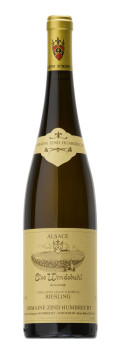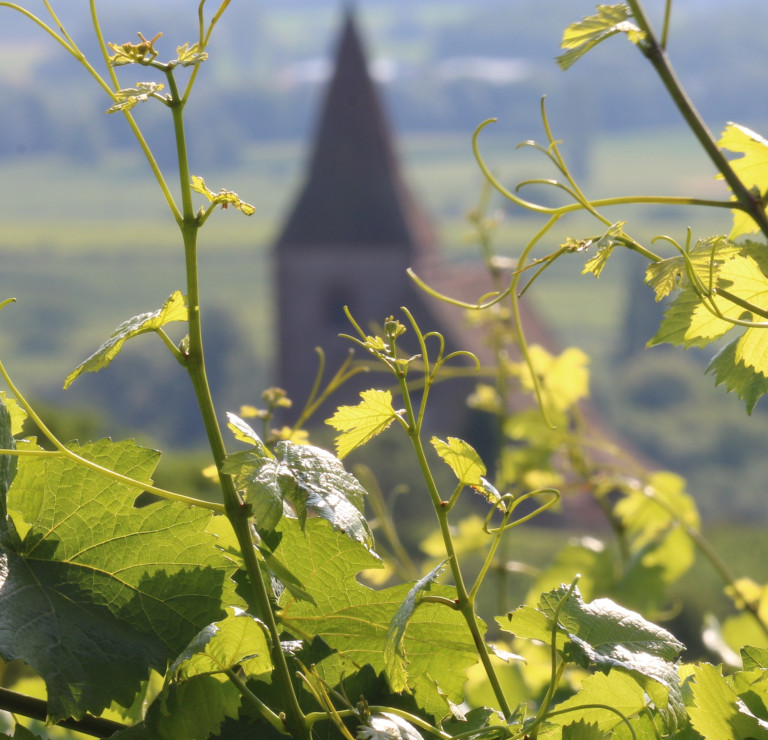
Technical presentation
| Bottling : | February 2019 |
|---|---|
| Acquired alcohol : | 12 ° |
| Residual sugar : | 5.8 g/l |
| pH : | 3.0 |
| Yield : | 45 hl/ha |
| Optimum tasting : | 2022-2042+ |
| Average age of vines : | 43 years |
| Grape variety : | Riesling |
| Terroir : | Clos Windsbuhl |
| Sweetness index : | 1 |
| Soil : | Medium to steep slope, Muschelkalk calcareous, South/South East facing |
Description of the wine Riesling Clos Windsbuhl 2017
The Windsbuhl is an ancient imperial property of the Habsburg family until the end of the Thirty Years war in Europe and the signature of the Westphalia treaty in 1648, when Alsace was annexed to France by Louis XIV. Subsequently, it belonged to the French king and various noble families until the French revolution and was eventually sold to the public. My father and myself acquired this 6.5ha vineyard in 1987, 1988 being the first vintage produced on the Clos by the domaine. In 2017, Pierre Emile Humbrecht was eventually able to acquire the forest and fields (30ha) historically attached to the property in the past. The limestone of the Windsbuhl is poor, rich in magnesium, contains a lot of rocks and contain interesting clay components. The rocky nature of the soil allows the vineyard to warm up quickly and drain the excess water if needed. It is an important characteristic of the vineyard as its higher altitude commend a cooler micro-climate. Grapes ripen slowly and tend to keep high acidities, explaining also the length of the fermentation of any wine of the Windsbuhl.

Tasting notes
03/2019 : Bright yellow colour. The nose oozes elegance and Riesling purity. Despite a normal and typical small lees reduction, the Windsbuhl has the capacity to express an elegant and delicate aromatic frame. The palate is light and racy. The lower alcohol power doesn’t distract from the fact that the flavour is intense and persisting on the finish. The Muschelkalk brings a racy, citrus based acidity that makes the vertebrae of the wine. The finish is salivating, precise and long, without harshness or green elements. It will age gracefully.

The Clos Windsbuhl of Hunawihr
The altitude of the vineyard coupled with Hunawihr’s tardy climate means that the Clos Windsbuhl is often one of the last of our vineyards to be harvested. This explains the aromatic quality of the Clos’ wines and the consistent balance of acidity, a guarantee of good ageing. Although often harvested late, the Windsbuhl grapes are only rarely botryitized, doubtless due to the altitude of the vineyard, but nevertheless often reach high levels of maturity.